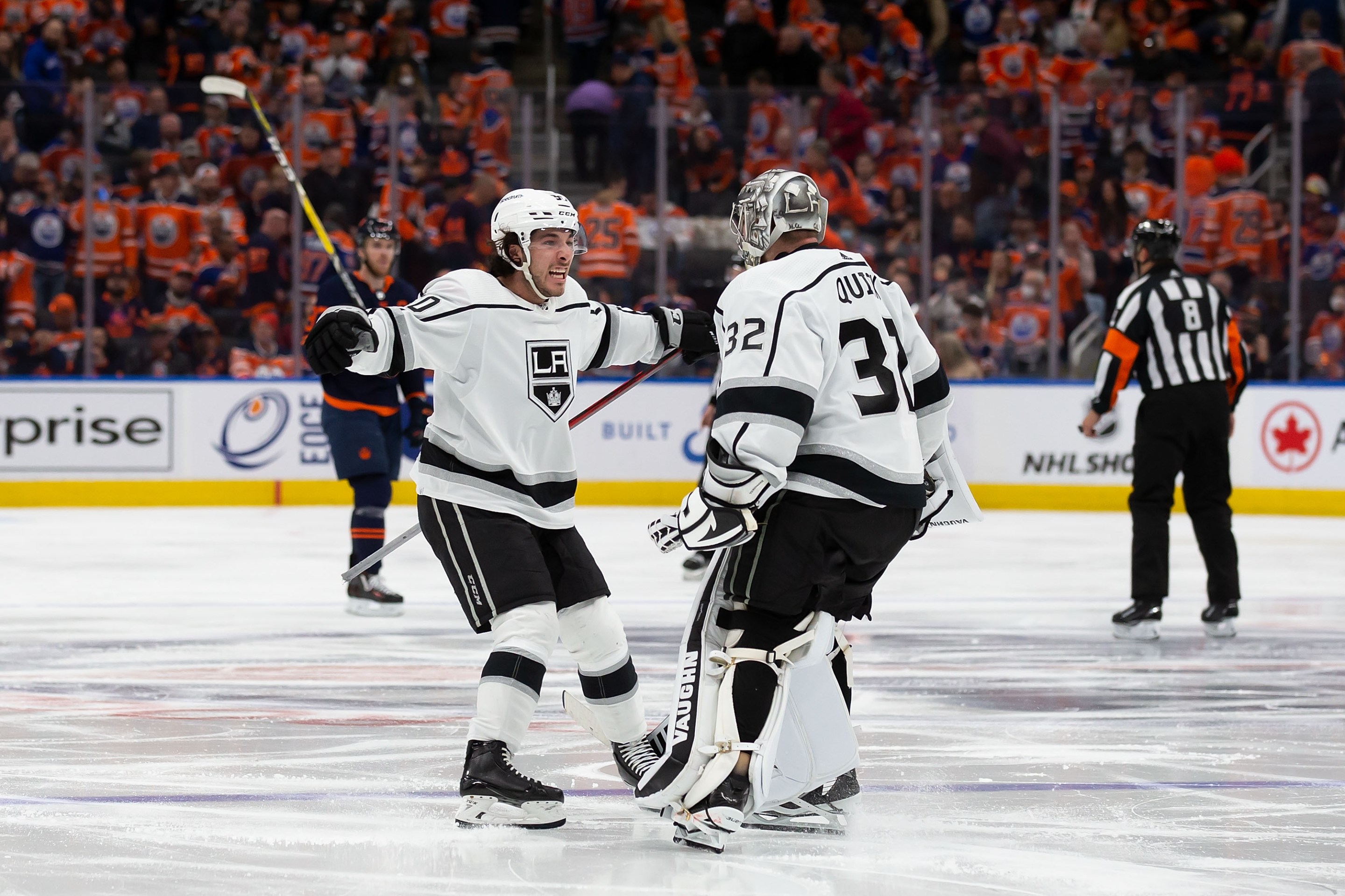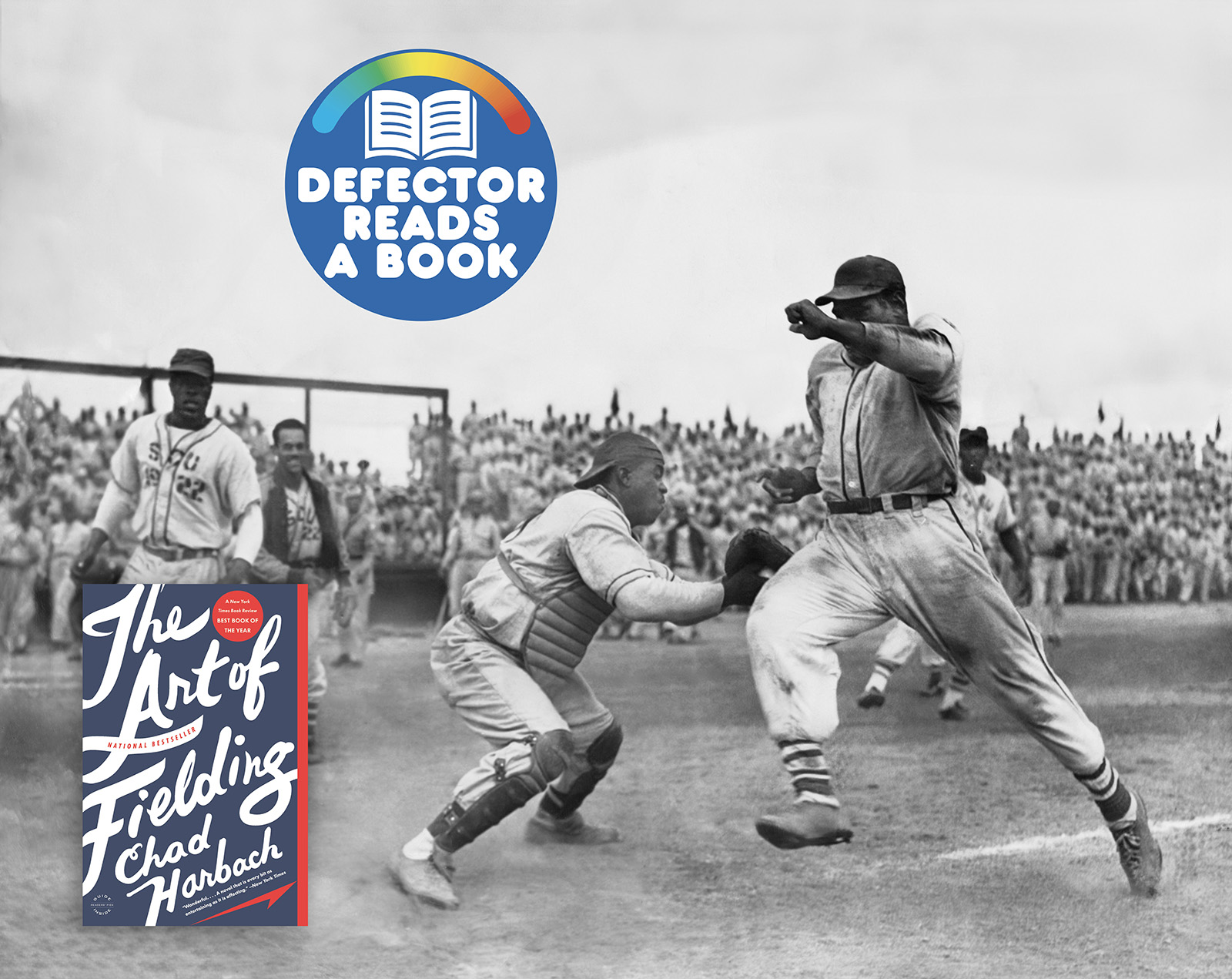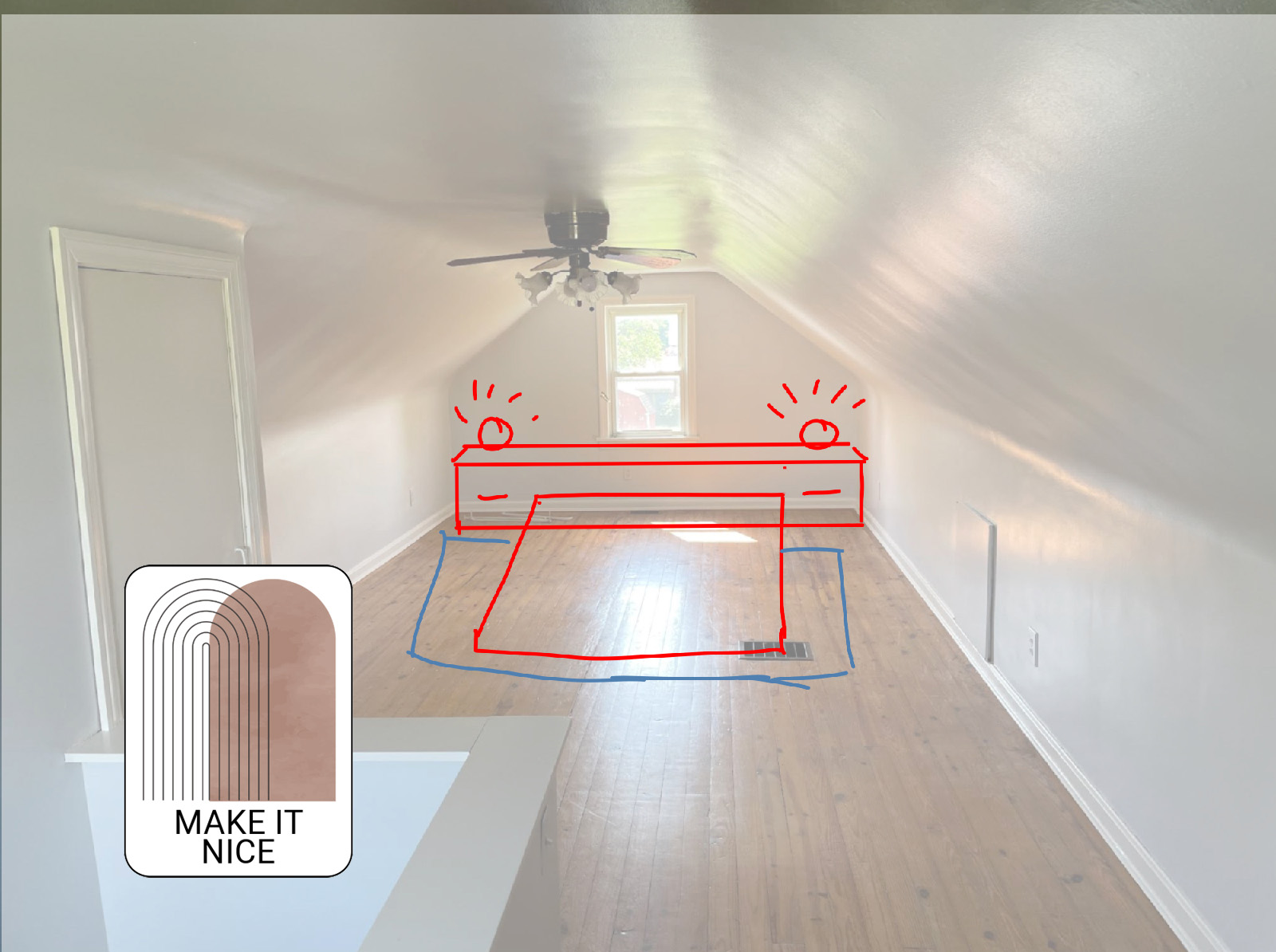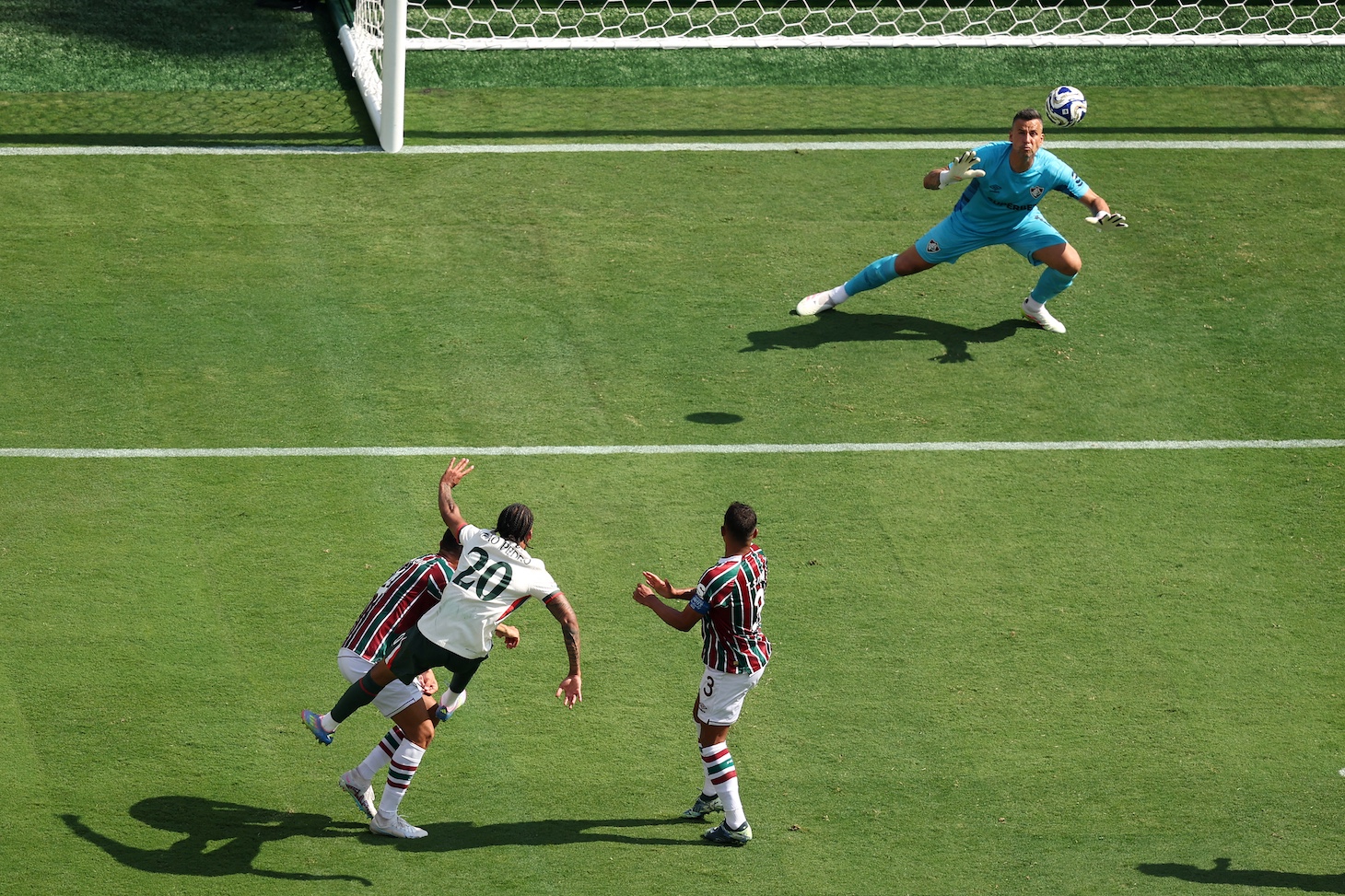The final stretch of regulation in Game 5 of a tied Kings-Oilers series felt like one of the most exhilarating and vital moments in recent Edmonton history. Even I, a relatively neutral observer, felt myself vibrating with awe as the Oilers left the ice at the end of the third period, basking in the glow of an improbable game-tying comeback in front of an ecstatic home crowd. Suddenly, after facing the brink, they had all the momentum, and their inspiring play in the most crucial minutes of their season made their eventual overtime victory feel inevitable.
Instead, they basically failed to posses the puck for the remainder of the game.
Let's go back a bit. Well, a lot. In 2006, an unlikely eighth-seeded Oilers team fell in Game 7 of the Stanley Cup Final to the Carolina Hurricanes, a heartbreak that was followed by an entire decade of irrelevance. In 2017, the fruits of those failures—namely Connor McDavid and Leon Draisaitl—piloted the Oilers to their first playoff series win in a long time, taking down the Sharks before losing in seven to the Anaheim Ducks. The optimism bolstered by that early glimpse of success quickly withered away, however. This promising generation of Oilers failed to build out their team and missed the playoffs the following two years, then couldn't get out of the qualifying round in the 2020 bubble. In 2021, despite a clear path through the North, they were swept by the Jets in the first round. And now the 2022 playoffs, once perhaps a target date for a Cup, could push the fanbase into true despair if the team can't even make it past the underdog Kings.
With all that baggage in mind, you can see why the situation felt bleak with nine minutes remaining in the third period. The Kings had taken a 3-1 lead, Connor McDavid had responded with a goal, but then a tripping penalty taken by the man himself, followed by a four-minute double minor for Ryan McLeod less than two minutes later, put the Oilers on the back foot. They survived for a while, but then Phillip Danault—a genius offseason pickup by L.A. that keeps looking smarter—tapped a sneaky Adrian Kempe pass through Mike Smith. Not only did the Kings hold a 4-2 advantage, but they also retained another two minutes of power play.
But the Oilers' desperation gave them a spark from the aggressive, unconventional penalty killing duo of McDavid and Draisaitl. Leon took a puck in front of his own net with 40 seconds left on the kill and brought it up to Connor, who induces fear and panic whenever he crosses the blue line with possession. In a 3-on-3 setup, McDavid drew two defenders, passed across to a covered Brett Kulak, and then a trailing Draisaitl took a deflection off the defender in the slot and scored.
That goal brought the crowd back to life and encouraged some positive thinking, which was rewarded less than three minutes later. Again, it was the Edmonton stars forcing their own success, this time on the power play instead of the kill. The goal here was a testament to just how much McDavid demands everybody's focus, as his gravity on a trip with the puck around the back of the net dragged attention away from Draisaitl and set him up for a lethal one-timer in acres of space.
This one felt special. Maybe because Toronto had also denied its pessimists satisfaction earlier in the night. Maybe because Connor and Leon loom so large over anyone the Kings could ice. Whatever the reason, the Oilers felt like they had lightning in a bottle as they celebrated the 4-4 tie.
And now we're back to the giant letdown. The Oilers once again put out the big guns for overtime, but Los Angeles took control off the draw and fired four different attempts in the first minute while stymieing Edmonton's efforts to clear. When Evander Kane slipped while trying to grab the puck at center ice, Adrian Kempe pounced. L.A.'s top scorer sheltered it along the boards, cut in front of a sliding, poke-checking Duncan Keith, and moved across Smith in the crease to finish for the win. As you can see here, the Kings showed no fear, hemming in the Oilers from the start and not even giving them a chance to try and beat Jonathan Quick one more time.
This was another excellent showing for Los Angeles, who got whomped in Games 2 and 3 but won 4-0 at home before traveling back to Edmonton for this gutsy victory. Despite the overtime, all the underlying numbers heavily favored the Kings, and the sobering fact remains for Edmonton that even after all the front-office endeavors to give them some help, it once again took McDavid and Draisaitl carrying the team on their backs just to force OT in a 2-2 series against a team that barely managed to break even on goal differential this year. Years later, the story is still the same.
The moment I keep coming back to, though, is the first one from overtime—the face-off that put the puck in the Kings' attacking zone and kept it there for quite a while. Specifically, I'm looking at Keith's failure to do anything more than swat the puck down when the Kings try and send it in, serving it on a plate for Trevor Moore instead of giving the Oilers an opportunity to settle. From this little bounce on, the rest of the game was a sprint entirely dictated by Los Angeles.
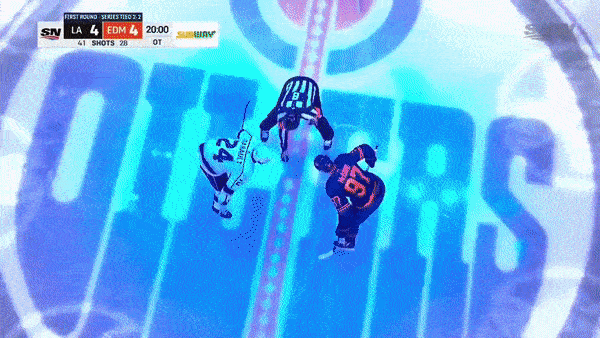
Does that mean I put the blame for Edmonton's loss on Keith? Well, it's tempting. But the randomness is what bugs me even more than the past-his-prime defenseman with the huge cap hit starting overtime. What gets the puck to the blue line and onto the stick of Moore is as much a little disc possessing a mind of its own as it is any conscious effort from the Kings. Yes, they generally want to move it toward the Edmonton net, but you could run this face-off the same way 100 times and never see the puck in the same place on the ice after three seconds. Only after the awkward block by Keith does the game start to take its shape. By then, it's too late for Edmonton to ever find its footing again, and before they know it they're facing elimination. It's all what makes hockey, and the playoffs especially, so great and exciting and confounding and stupid. You can have the best player of this generation, and maybe the other best player of this generation. But if the puck's not on your side, there's really not much you can do.
